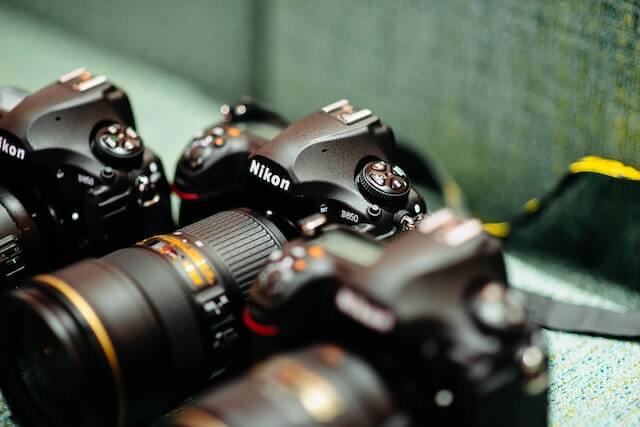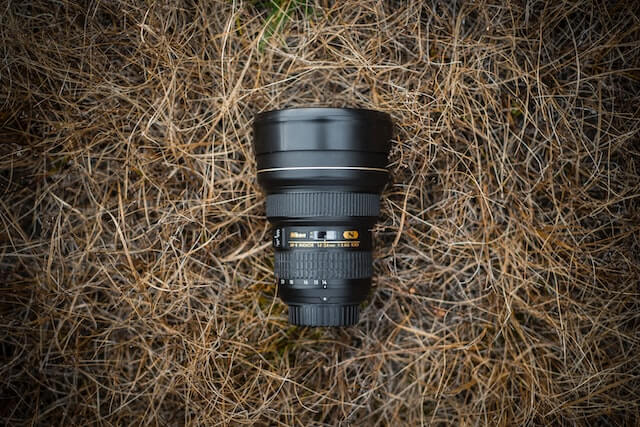The Nikon full frame camera lens is an essential piece of equipment for those who want to capture stunning photographs. Nikon has a wide variety of lenses available for a full frame camera, each with its own set of pros and cons. In this article, we’ll take a look at the different types of Nikon full frame camera lenses, their pros and cons, and how to choose the right lens for your needs.
What is a Full Frame Camera Lens?
A full frame camera lens is a lens that is designed to be used with a full frame camera. The size of the lens is larger than that of a crop-sensor camera lens and therefore allows more light to enter the camera, resulting in better image quality. Furthermore, because of the larger size of the lens, it can capture a wider field of view, making it ideal for landscape and other wide-angle shots.

Types of Nikon Full Frame Camera Lenses
Nikon offers a wide range of lenses for full frame cameras. These include wide angle lenses (e.g. the Nikon AF-S NIKKOR 14-24mm f/2.8G ED lens), telephoto lenses (e.g. the Nikon AF-S NIKKOR 200-500mm f/5.6G ED lens), portrait lenses (e.g. the Nikon AF-S NIKKOR 85mm f/1.4G lens), macro lenses (e.g. the Nikon AF-S VR Micro-NIKKOR 105mm f/2.8G IF-ED lens), and many more.
Pros of Nikon Full Frame Camera Lenses
The main advantage of Nikon full frame camera lenses is the increased image quality they provide. Because of their larger size, they can capture more light, resulting in better color, contrast, and sharpness. Furthermore, because of the wider field of view they provide, they are ideal for capturing wide-angle shots.
Cons of Nikon Full Frame Camera Lenses
The main disadvantage of Nikon full frame camera lenses is their cost. They tend to be more expensive than crop-sensor lenses, as well as heavier and bulkier. Additionally, because of their larger size, they can be more difficult to use in tight spaces.
How to Choose a Nikon Full Frame Camera Lens
When choosing a Nikon full frame camera lens, it is important to consider the type of photography you plan to do. If you are shooting wide-angle shots, then a wide-angle lens such as the Nikon AF-S NIKKOR 14-24mm f/2.8G ED lens would be a good choice. For portrait photography, the Nikon AF-S NIKKOR 85mm f/1.4G lens would be a great option. For macro photography, the Nikon AF-S VR Micro-NIKKOR 105mm f/2.8G IF-ED lens would be ideal.

Where I shoot mostly wildlife, I’m often using a telephoto lens. Many of Nikon’s telephoto lenses are of top-notch quality and the decision comes down to use case and price tag. Here are some good options:
- AF-S VR Zoom-Nikkor 70-300mm f/4.5-5.6G IF-ED
- AF-S NIKKOR 300mm f/4E PF ED VR
- AF-S NIKKOR 200-500mm f/5.6E ED VR
- AF-S NIKKOR 500mm f/5.6E PF ED VR
- AF-S NIKKOR 600mm f/4E FL ED VR
Some additional considerations to increase your reach would be non-Nikon brand lenses or teleconverters:
- Sigma 150-600mm 5-6.3 Contemporary DG OS HSM
- Nikon AF-S Teleconverter TC-17E II
- Nikon AF-S Teleconverter TC-20E III
Wrapping Up: A Complete Guide to Nikon Full Frame Camera Lenses
Nikon full frame camera lenses are an excellent choice for photographers who want the best image quality and widest field of view. They are more expensive than crop-sensor lenses and can be more difficult to use in tight spaces, but the increased image quality and wider field of view make them well worth the investment. With the right lens, you can capture stunning photos with your Nikon full frame camera.
Thanks for reading to the end. Your support means the world to me! If you’re interested in seeing some of my best photography work, check out the Gallery or my Instagram. Some of my images are also available as photo prints, with a selection of my favorites HERE.
This post contains affiliate links, which means if you make a purchase through my site I may make a small commission at no extra charge to you. I only promote products that I 100% support.




